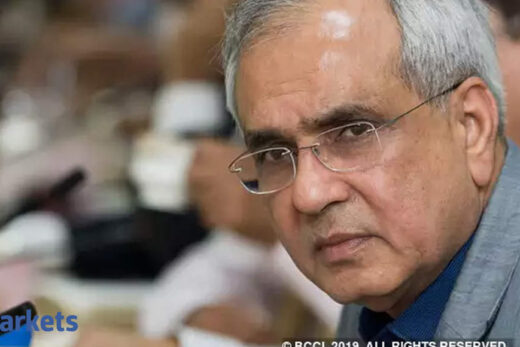Among various expectations of individual taxpayers from Budget 2021, a key one is around taxability of retiral benefits. These benefits primarily cater to the needs of an individual after retirement.
Here are few key expectations of taxpayers from Budget 2021.
1. Increase in the gratuity exemption limit
Currently, most companies pay gratuity to their employees based on ‘basic pay’ component mentioned in employees’ compensation structures. The gratuity payout to employees will increase on account of introduction of the new labour codes, i.e., Code on Wages, 2019 and the Code on Social Security, 2020.
One of the major changes in the new codes is standardisation of the definition of ‘wages’.
The definition of ‘wages’ under the new codes is wider and factors in all remuneration including special allowance, remuneration in kind up to 15% of total wages, and excludes certain allowances and benefits such as house rent allowance, statutory bonus, etc. Further, the wage definition also has the provision that ‘wages’ would be at least 50% of the total emoluments.
Most companies today have their basic salary ranging around 35-45% of the total compensation paid to an employee and gratuity is calculated on such basic pay. Now since wages would constitute at least 50% of the total compensation, employers will be required to make gratuity payments to employees on at least 50% of the total wages. This will result in increase in the gratuity payouts in the hands of employees.
Since the gratuity payout to employees will increase on account of the new codes, the maximum exemption limit for gratuity could be increased from Rs 20 lakh to Rs 25 lakh.
2. Increase in the tax limit for employers’ contributions to retirals
Budget 2020 introduced an aggregate monetary limit of Rs 7.5 lakh for exemption in respect of employers’ contribution to the Employees’ Provident Fund (EPF), National Pension Scheme (NPS) and the Superannuation Fund. Employers’ contributions in excess of this limit would be a taxable perquisite in the hands of employees. This monetary limit should be increased from Rs 7.5 lakh to Rs 9 lakh which will result in higher savings for the employee by limiting the tax outflow.
A higher limit is also justified in view of the definition of wages that is set to undergo a major change once the new Labour Codes are made effective. Under the Labour Codes, the definition of wages is wide and hence, employer’s contributions to provident fund is likely to increase. In the absence of an increase in the exemption limit, employees could end up paying more taxes on their employers’ contributions to provident fund, NPS and Superannuation Fund.
3. Taxability of accretions earned from employers’ contributions to retirals
Given that employer contribution exceeding Rs 7.5 lakh to the above-mentioned schemes is taxable, it was provided that the annual accretions earned on such taxable contributions would also be liable to tax in the hands of employees. Since the introduction of this amendment, there has been ambiguity on the manner in which tax on these accretions is to be determined. Budget 2021 should provide clarity on the calculation of the taxable accretions in such schemes.
4. Increase in exemption limit for employer’s contribution to provident fund
Employer’s contributions to provident fund is currently exempt up to 12% of salary, where salary includes dearness allowance, if the terms of employment so provide, but excludes all other allowances and perquisites. With the definition of wages set to widen and employer contributions to provident fund set to increase under the new Labour Codes, the exemption for employer contributions should be brought in line with the contributions required under the Labour Codes, i.e., 12% of the wages as defined in the Labour codes.
5. Increase in limit under section 80C of the Act
Under section 80C of the Income-tax Act, 1961 (‘Act’) there is a wide range of tax-saving investment options such as employee’s contribution to EPF, Public Provident Fund (PPF), life insurance premiums, children’s tuition fees, repayment of housing loan, etc., within the limit of Rs 1.5 lakh
As discussed above, similar to gratuity payouts, employee’s contributions to provident fund is also expected to increase on account of change in the definition of wages. Considering there will now be a higher contribution made by an employee to EPF and since the limit under section 80C has not been enhanced for several years now, the government should increase the limit from Rs 1.5 lakh to Rs 2 lakh.
6. Increase in the limit of employee’s contributions to NPS
Contribution to NPS has lately become one of the favored options to save taxes. Presently, an individual can claim a total deduction of Rs 2 lakh [Rs 1.5 lakh which is available as a deduction under section 80C/80CCD(1) and Rs 50,000 under section 80CCD(1B) of the Act’]. Most taxpayers exhaust their limit of Rs 1.5 lakh through other tax-saving investments like life insurance premiums, provident fund, PPF, etc. Deduction for NPS contribution is therefore limited to section 80CCD(1B) of the Act which has a limit of Rs 50,000. In order to give a boost to NPS investments, the limit under section 80CCD(1B) should be enhanced from Rs 50,000 to Rs 1 lakh.
Due to the uncertainty created by the ongoing Covid-19 pandemic, if the Finance Minister meets some of the above-mentioned expectations of the taxpayer in Budget 2021, the same would provide some relief to them.
(The writer is a partner with Deloitte India. Mousami Nagarsenkar is a Director, Prachi Phansikar is a Deputy Manager and Richa Udaipuri is a Tax Senior with Deloitte Haskins & Sells LLP also contributed to the article.)




